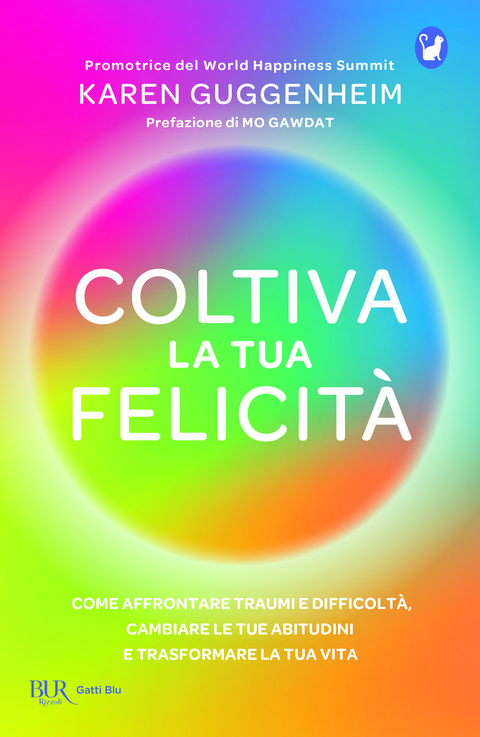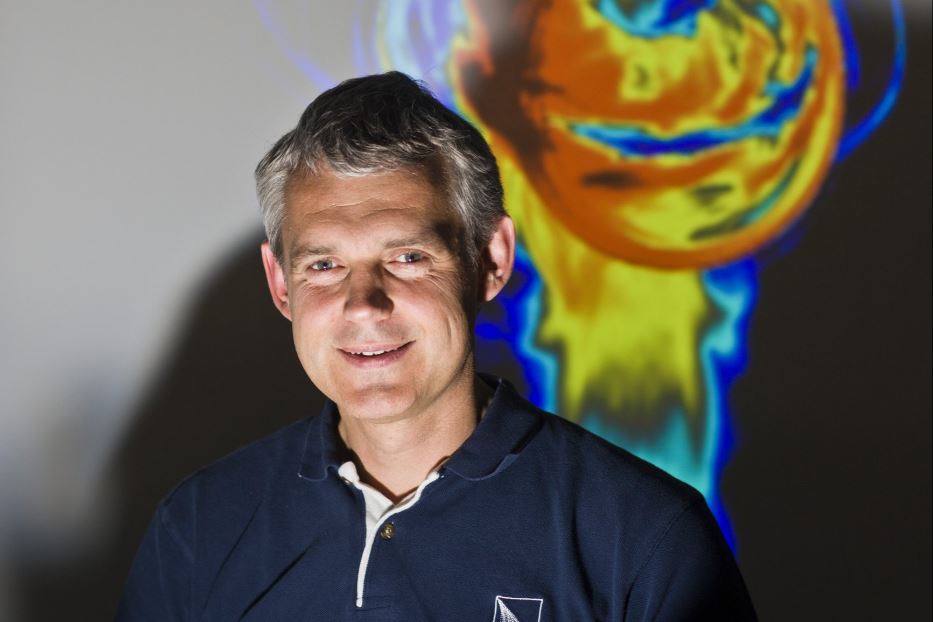She began, “I became happy by chance.” Karen Guggenheim, 50, is a social entrepreneur, speaker, and one of the world’s most active advocates for the value of happiness. lucky case? Not really, because the triggering event was the death of her beloved husband. Guggenheim experienced what insiders call “post-traumatic growth” (PTG), a phenomenon more common than one might think, which refers to a change of direction in a person’s life toward happiness after a tragedy. Today she is the co-founder and producer of World Happiness Summita major international event dedicated to the science of positivity and well-being, which this year arrives in Italy for the first time (March 24-26 in Como).
A unique opportunity to hear the teachings of the world’s leading happiness experts, including Nobel Prize in Economics Daniel Kahneman. But also the event promoter herself, who for years has devoted all her energies to helping people overcome the traumas and difficulties that prevent them from feeling happy and changing their habits and with them their lives, because “the true source of happiness is ourselves.”
What prompted you to fund a global initiative to spread happiness?
I chose to be happy after suddenly losing my husband in 2013. At first, I did it to survive and to be of service to our children. Then, when I discovered there was a science behind happiness, I decided to dedicate my life to promoting its culture. Sustainable happiness in the academic sense can be learned and transmitted! My story is a story of post-traumatic growth, I want to raise awareness that even after loss we can rebuild our lives in a positive way.
Why did you choose to organize the summit in Italy?
Expansion is part of our mission, and in a sense, Italy has chosen us. We are working closely with our sponsor DHL Express, and CEO for Europe, Alberto Nobis, an Italian. He recommended Lake Como as a location that fits perfectly with this year’s theme: connectivity.
What is its relationship to happiness?
Attachment is associated with consciousness, without which we cannot do anything. By connecting with the self, we can choose how to act and what thoughts we like each day. But connection with others is also key: Humans have a natural, biological need to connect with other people, and relationships are the biggest predictor of happiness. We’ll talk about it with the contribution of several speakers, including Nobel Prize winner Daniel Kahneman. We will also launch a new app related to the Summit and the Elements of Well-Being Testimony, based on his teachings.
The program also includes some meetings that are organized in unusual places.
Precisely in the name of communication, we wanted to connect with the community that hosts us and its natural environment: we will have different breaks within the city’s magnificent ruins and organize small group meetings in cafes and restaurants.
There is also a think tank on how to increase well-being at work: Is smart working a useful tool?
This depends on how you mean it. If employees are participating in a way that ensures their needs are met, then yes, that’s right. There is no single formula able to adapt to any company and sector. It can be helpful to develop some kind of wellness vocabulary in which to form the perfect solution from time to time, so that people can make collective decisions about what qualifies as a healthy business.
The summit presents the “world’s leading happiness experts.” How did you choose them?
These are the scholars who have done the most relevant research in the field, and who have often written seminal texts. For example, Laurie Santos teaches Learning about Happiness at Yale University and will talk about how this state of mind is internalized into education, especially during difficult times.
How do we learn to be happy?
Based on the elements of well-being. By taking care of our physical, mental, and financial health, investing in relationships, finding purpose in life, and being self-aware, we can become happier.
She succeeded after the death of her husband: How did she do that?
When it happened, I didn’t want to live anymore, and then I remembered that I had two children, so I chose to resist. But the next thought was: How? Being alive wasn’t enough, I had to find a way to be happy too. The first step was to have a goal and then give meaning to what happened. I couldn’t control the fact that my husband had died, but so was my reaction. So I decided to retake my MBA from Georgetown University in Washington. After graduation, I got a job that was excellent in theory, but not very important for me. At this point I met a group of volunteers who were discussing organizing a happiness meeting. I immediately felt a connection. Six weeks later, I quit my job and set up Wohasu Llc to host the first World Happiness Summit in 2017. I became a social entrepreneur promoting the amazing potential people have to improve their personal and professional lives. Today Wohasu has become a global movement.
Happiness and Money: What is their relationship to you?
Money always helps and can make you happier if used properly. Obviously we all need it, but once you reach a certain level of comfort, the money itself doesn’t add up. How we use it is important. For example, I like to spend it on experiences and others: it makes me really happy.
However, supporting others isn’t for everyone: In the long run, it can be challenging.
Human beings are made to thrive when they help others, and happy people are the ones who provide the most support to society. This is a selfless cycle! However, to develop happiness, you also need to respect boundaries and take care of yourself. Stop and rest every now and then to avoid feeling overwhelmed or experiencing negative stress.
What is the importance of family love?
You saved my life. Those who do not have it can build strong friendships. In my case, the collective love of some friends replaced the support I had previously received from my husband. I love them deeply and the time I spend with them enriches my life.
Welfare policies discussed during the G20 Health Summit: What changes does the world need?
It is essential to look beyond GDP to measure a country’s success: health, education, and environmental sustainability must be considered.
He wrote a book in which he points out a path to a new luxury: Where do we begin?
The journey begins from within. Happiness is within us: we know it as children, but when we grow up we replace it with success. However, many studies show that he is the first to feed the second.
How does he train his happiness every day?
I don’t sleep with my phone next to me: after 21 I stop checking it. And I created a morning routine: I make myself a cup of coffee and for about 30 minutes I read inspirational texts and meditate through prayer. I listen to music while I get dressed and do sports outdoors.
PS The fifth version of world happiness summitWohasu) in Como (March 24-26). The event will bring together leading global experts in the science of happiness with ordinary people, with the goal of sharing their experiences and imparting some practical tools for a more positive life. Paid meetings. Information and tickets at worldhappinesssummit.com

“Infuriatingly humble social media buff. Twitter advocate. Writer. Internet nerd.”



